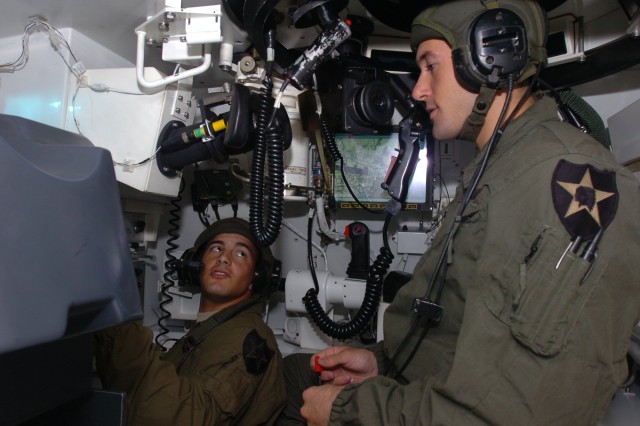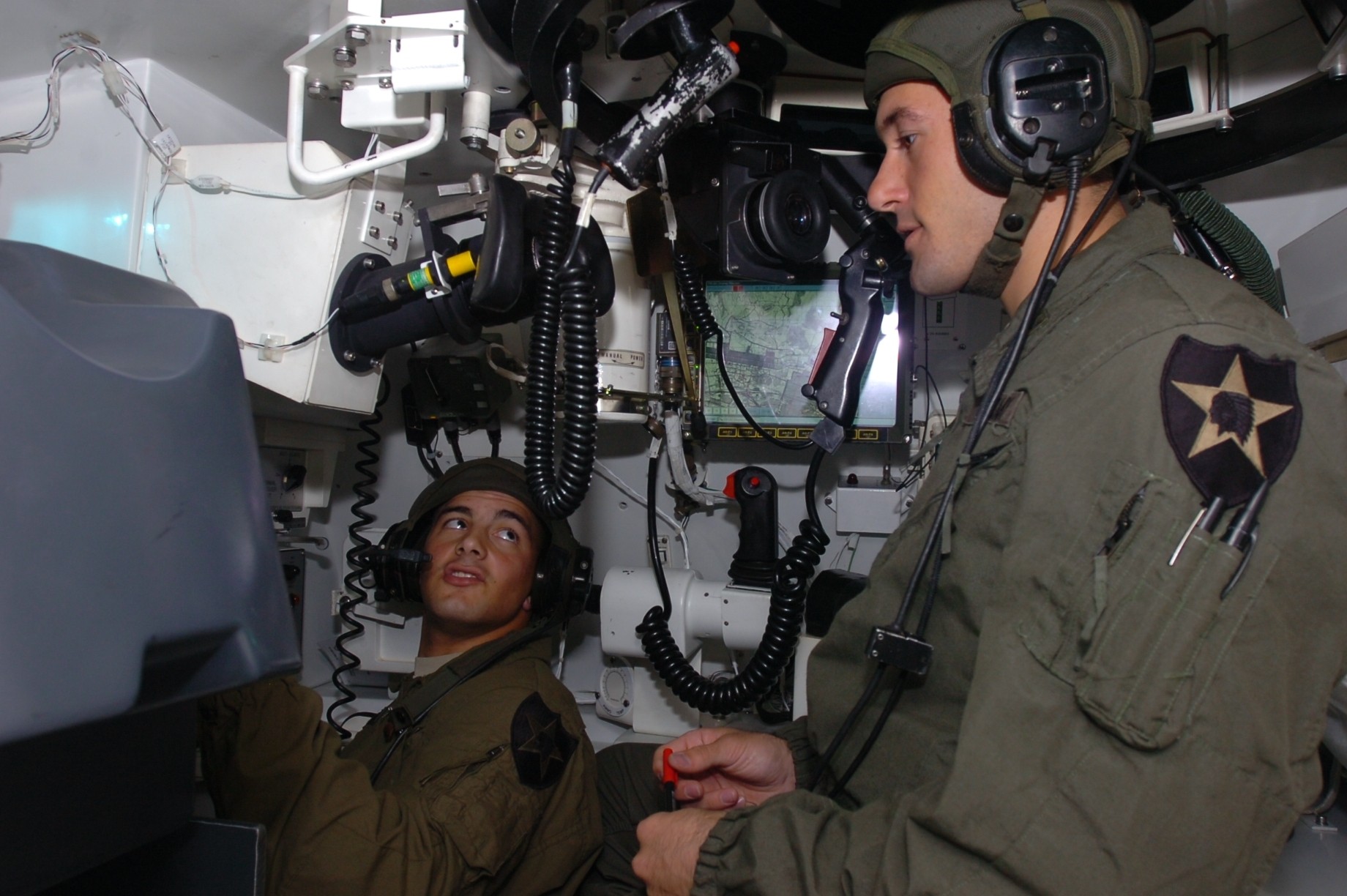The sweetest sound a tanker can hear is the explosion of his round destroying an enemy tank.
These days it is hard to gain that kind of experience outside the battlefield unless Soldiers train at the Close Combat Tactical Trainer center, which is exactly what the 2nd Battalion, 9th Infantry Regiment did Sept. 19 at Camp Hovey.
Simulation machines at the CCTT allow Soldiers to cycle through all the tanker jobs and gain the closest thing possible to combat experience in an M1A1 Abrams tank without actually firing rounds at real targets.
"Today we conducted training on how to maneuver, shoot, and move as a platoon or company in a simulated environment," said 2nd Lt. Andrew Bauder, first platoon leader for Crazyhorse Company, 2nd Bn., 9th Inf. Regt.
For some Soldiers, this training gives them a chance to experience things they would not be able to do outside a simulation device.
"I've learned a lot because I've been able step up and experience what it's like to be in the gunner's seat and actually shoot," said Pfc. Eric Lubus, M1 armor crewman for C Co., 2nd Bn., 9th Inf. Regt.
Another aspect of the training that is emphasized is communication, as it can mean the difference between life and death to a fellow Soldier.
"The training helps the platoon to work on how to communicate and being able to trust that people have each other's back," Lubus said.
Training simulators at the CCTT are made to make the training as close to the real thing as possible, including small details such as weather conditions.
"The programmers here can set it to fog, daytime or nighttime so it's fairly realistic," said Bauder.
The training on these simulators is such an effective and successful training tool that Soldiers will come repeatedly to hone and sharpen their skills.
"We train on the simulators every two to three months for a week at a time," said Lubus. "We're often doing this training."
Along with realistic environments and feedback, training on simulators can save commanders time and effort while receiving top notch training.
"This is a great time saver, and if you can't get out to the field this is the best way to train," said Cpl. Chang Hwan Park, a 2-9 loader.


Social Sharing